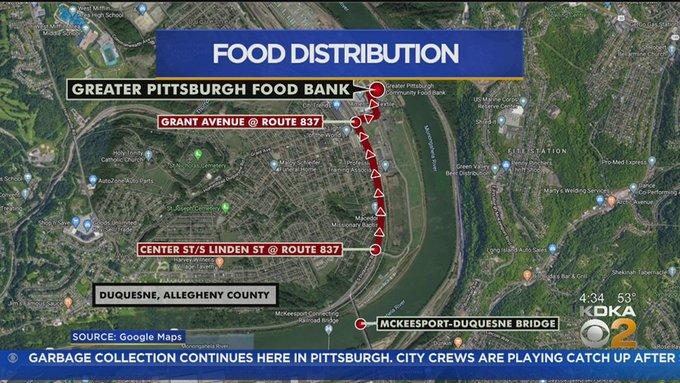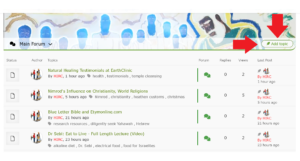The same situation happened when our ancestors were in Egypt.
- Gen 41:55 And when all the land of Egypt was famished, the people cried to Pharaoh for bread: and Pharaoh said unto all the Egyptians, Go unto Joseph; what he saith to you, do.
- Gen 47:18 When that year was ended, they came unto him the second year, and said unto him, We will not hide it from my lord, how that our money is spent; my lord also hath our herds of cattle; there is not ought left in the sight of my lord, but our bodies, and our lands:
- Gen 47:19 Wherefore shall we die before thine eyes, both we and our land? buy us and our land for bread, and we and our land will be servants unto Pharaoh: and give us seed, that we may live, and not die, that the land be not desolate.
- Gen 47:20 And Joseph bought all the land of Egypt for Pharaoh; for the Egyptians sold every man his field, because the famine prevailed over them: so the land became Pharaoh’s.
- Gen 47:21 And as for the people, he removed them to cities from one end of the borders of Egypt even to the other end thereof.
And it will happen again in America, people will willingly sell themselves in order to “eat”.
- Ecc 1:9 The thing that hath been, it is that which shall be; and that which is done is that which shall be done: and there is no new thing under the sun.
- Revelation 11:8 And their dead bodies shall lie in the street of the great city, which spiritually is called Sodom and Egypt, where also our Lord was crucified.
- Revelation 13:17 And that no man might buy or sell, save he that had the mark, or the name of the beast, or the number of his name.
ARTICLE
Over 40% Of San Diego Residents Turned To Food Banks Last Month
Alarming reports from Reuters indicate food bank networks are quickly running out of staple goods as 26 million people in five weeks are out of work, broke and hungry, as an economic depression could result in social decay.
There’s nothing complicated about our analysis, but rather common sense, as a crashed economy and high unemployment could unleash a “social bomb.” Earlier this week, the “Pennsylvania Militia” rolled up to the state capitol building in Harrisburg in a military truck, packed with men wearing bulletproof vests and wielding rifles and shotguns, demanded the state government reopen the economy after it has led to widespread unemployment.
In the last four weeks, we have reported food banks across Pennsylvania have experienced unprecedented demand as hungry families wait in mile-long traffic jams outside of these facilities for care packages. And as we’ve explained, food banks are becoming stressed across the country.
Hundreds of cars wait to receive food from the Greater Community Food Bank in Duquesne. Collection begins at noon. @PghFoodBank @PittsburghPG pic.twitter.com/94YFaO7dqX
— Andrew Rush (@andrewrush) March 30, 2020
Reuters reports that the El Pasoans Fighting Hunger Food Bank, located in El Paso, Texas, has started to ration certain staple goods as product shortages develop.
“We really have no dry goods,” said Bonnie Escobar, chief development officer of El Pasoans Fighting Hunger.
The same story is being shared in New York City as more than a third of the city’s food banks have shuttered operations because of the lack of goods. San Diego, Chicago, and Houston are other cities that have reported dwindling supplies at food banks.
Feeding America told Reuters that 1 in 7 Americans relied on food banks before the pandemic. Now demand has surged to “doubled or tripled at many organizations.”
With food banks running out of staple goods – US farmers are culling pigs, dumping dairy products, and breaking eggs as supply chains implode amid lockdowns and economic turmoil.
“And yet farmers are destroying produce, dumping milk and culling livestock because the pandemic has upended supply chains, making it impossible for many to get crops to market. Grocery stores struggle to stock shelves because suppliers can’t adjust to the sudden shift of demand away from shuttered restaurants to retailers, which requires different packaging and distribution networks,” Reuters said.
We are dumping milk in South Florida because there is no home for it. We still have to feed and care for our cows, and our farmers are still milking cows, in hopes that we can sell that milk in the future… #stillfarming pic.twitter.com/tn4dpUBuUa
— Ben Butler (@BenLButler) April 3, 2020
Feeding America said US food banks before the pandemic relied on grocery stores for about a third of fresh food and dry goods. Nearly a quarter of meats and cheese came from government programs, and the rest were donations and purchases made by the charities.
However, grocery stores have been donating fewer products to food banks during the pandemic as their shelves have gone bare. Rapid food inflation has not helped as well, as it costs more money for food banks to purchase goods. A Nebraska food bank is set to spend upwards of $1 million on food for April, compared to regular times of around $70,000.
“This is not an anomaly” across the region, said Angie Grote, a spokesperson for Omaha’s Food Bank for the Heartland, which operates facilities that serve 93 counties in Nebraska and Western Iowa.
Family counts on family! The weather will not stop us from hosting another Mobile Food Pantry. Continued thanks to the Food Bank and Mentor Nebraska for your ongoing collaboration and partnership. #OPSProud #uswe #ethicofcare #partnershipsmatter pic.twitter.com/Me9YW8Ebw7
— Lisa A. Utterback (@lautterback33) April 16, 2020
Farmers generally donate excess products to food banks. However, overwhelmed charities don’t have labor or resources to handle bulk donations. Nor “can the government act fast enough to fill the gap left by disruptions of other sources and the sudden spike in hunger,” Reuters explains.
Agriculture Secretary Sonny Perdue told Fox Business last week that President Trump wants to start purchasing excess products from farmers to supply food banks and prevent a hunger crisis. Though the gap to fill a shortage could be too late.
Several years ago, the Greater Chicago Food Depository extended the capacity of its cold storage after a glut in food. Now, because of the unprecedented demand from broke and hungry Americans, its freezers have been wiped clean.
Greg Trotter, a spokesman for the Chicago food bank, said some products are unavailable to restock and could take months for delivery.
“Food manufacturers have struggled to keep up with demand” from grocery consumers, Trotter said, “and are therefore selling less food directly to food banks.”
As food shortages develop, the San Diego Food Bank reports the number of people it fed over the last month has nearly doubled to 600,000. A similar demand surge was also reported across Fresno’s Central California Food Bank. The state’s food disruptors have seen demand collapse with restaurant closures, as the ability to deliver bulk products has come to a standstill. Food banks are not able to process bulk foods because of the lack of workers and time to repackage.
Vehicles line up at a drive-thru emergency food distribution center set up at SDCCU Stadium in San Diego by the food bank Feeding San Diego on Saturday, April 5, 2020 #foodsecurity #coronavirus pic.twitter.com/FIg6xTRhNB
— Evan Kirstel #StayHome #RemoteWork (@evankirstel) April 10, 2020
“We don’t have the ability to unpack it and repack it in family size,” said Kym Dildine, the Central California Food Bank’s chief administrative officer.
Monica White, CEO of Food Share of Ventura County, said her food bank had to reject bulk produce due to repackaging issues.
“It’s like asking Tesla to start building gas cars,” White said.
Some farmers in the state have resorted to destroying crops as restaurant demand has collapsed, and food banks cannot accept bulk.
But there is a glimmer of hope, the San Diego food bank has ordered a half-million-dollar machine to repackage bulk supplies of staples. But, in the meantime, that will not cure current food shortages.
The “new normal” in an economic depression is where 40% of residents in San Diego have turned to food banks. The one thing the government can’t afford is a food shortage that triggers a bunch of hangry people with no jobs. The clock is ticking.



